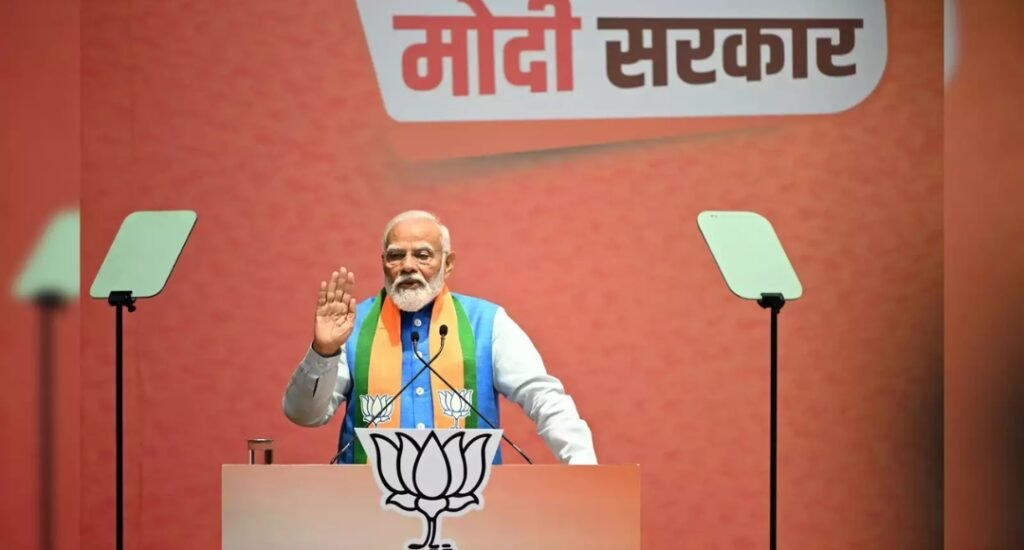The Madhya Pradesh government has recently made a significant announcement that will revolutionize the way payments are processed under its Ladli Lakshmi Yojana. The government has decided to integrate Unipay, a digital payment platform, to streamline the distribution of funds under this welfare scheme. This move not only promises greater efficiency and transparency but also aligns with the state’s vision of embracing digital technologies for better governance.
Ladli Lakshmi Yojana: Empowering Girls and Families
Launched in 2007, the Ladli Lakshmi Yojana is a key initiative by the Madhya Pradesh government aimed at promoting the welfare of girls. It seeks to improve the financial condition of families, especially those from economically weaker sections, by providing financial assistance to parents for the education and well-being of their daughters. Under the scheme, families receive monetary support that is released in installments over time, with the ultimate goal of ensuring that girls have access to education, healthcare, and other essential resources for their overall development.
Over the years, the scheme has been credited with empowering countless families in the state and helping reduce the gender disparity in education and employment. By providing financial incentives for the birth and education of girls, the government hopes to not only enhance the social status of women but also to foster a more equitable society.
The Need for a Digital Payment System

The traditional method of payment distribution under the Ladli Lakshmi Yojana involved manual processes, which often led to delays and inefficiencies. Many beneficiaries complained about the slow processing of payments, leading to uncertainty and frustration. Additionally, manual transactions are more prone to errors and fraudulent activities, which can significantly undermine the integrity of a social welfare program.
To address these challenges, the Madhya Pradesh government has turned to Unipay, a cutting-edge digital payment platform designed to facilitate faster, secure, and transparent transactions. Unipay allows the government to disburse funds directly into the bank accounts of the beneficiaries, ensuring that the money reaches the right person without any intermediaries or delays.
Unipay: Transforming Digital Transactions in Government Welfare Programs
Unipay is a government-approved digital payment system that has been designed to cater specifically to the needs of social welfare schemes. It is a user-friendly platform that offers a secure and transparent way to transfer funds directly to beneficiaries. By using Unipay, the Madhya Pradesh government aims to enhance the efficiency of the Ladli Lakshmi Yojana and other similar programs by ensuring that payments are made in a timely and error-free manner.
One of the key advantages of Unipay is its ability to track payments in real-time, providing both the government and the beneficiaries with complete visibility into the transaction process. This level of transparency ensures that there is no scope for corruption or mismanagement, and it also provides an added layer of accountability to the system.
Moreover, Unipay offers a high degree of security, protecting sensitive financial data and preventing unauthorized access. With digital payments, beneficiaries can also avoid the hassle of physically visiting government offices or banks to collect their payments. Instead, funds will be directly credited to their bank accounts, providing them with more control over their finances and reducing the chances of exploitation by middlemen.
Benefits for the Beneficiaries

The integration of Unipay into the Ladli Lakshmi Yojana brings numerous benefits for the families and girls who are the primary beneficiaries of the scheme. First and foremost, it will ensure the timely release of funds. As mentioned earlier, the manual processes often caused delays in the disbursement of payments, leaving families uncertain about when they would receive the much-needed financial support. With Unipay, this problem will be minimized, ensuring that payments are processed swiftly and reliably.
Additionally, the digital platform will make the entire payment process more transparent. Beneficiaries will be able to track their payments through the platform, knowing exactly when the funds were disbursed and when they are expected to receive the next installment. This transparency is crucial in maintaining the trust of the beneficiaries and ensuring that the funds are being used for the intended purposes.
Another significant advantage is the reduction in the risk of fraud. Traditional systems have often been plagued by intermediaries who take advantage of the lack of transparency to siphon off funds meant for the beneficiaries. With Unipay’s direct payment system, such fraudulent practices will be greatly reduced, ensuring that the full amount reaches the intended recipient.
A Vision for the Future: Digital Empowerment in Madhya Pradesh
The adoption of Unipay for the Ladli Lakshmi Yojana is just the beginning of a larger push towards digital governance in Madhya Pradesh. The state government is committed to leveraging technology to improve the delivery of services to its citizens. By embracing digital platforms like Unipay, the government hopes to not only enhance the efficiency of welfare programs but also to foster a culture of transparency, accountability, and inclusiveness.
In the coming years, the government plans to extend the use of Unipay to other welfare schemes as well, ensuring that more families benefit from the ease and convenience of digital transactions. As more people become familiar with digital payment systems, it will contribute to the overall financial inclusion of the state’s population, especially those from rural areas who might not have had access to traditional banking services.
The Ladli Lakshmi Yojana is already one of the most successful social welfare programs in Madhya Pradesh, and the integration of Unipay will undoubtedly take it to the next level. With a focus on digital empowerment, the Madhya Pradesh government is setting an example for other states to follow, demonstrating that technology can play a pivotal role in improving the lives of citizens and creating a more equitable society.





